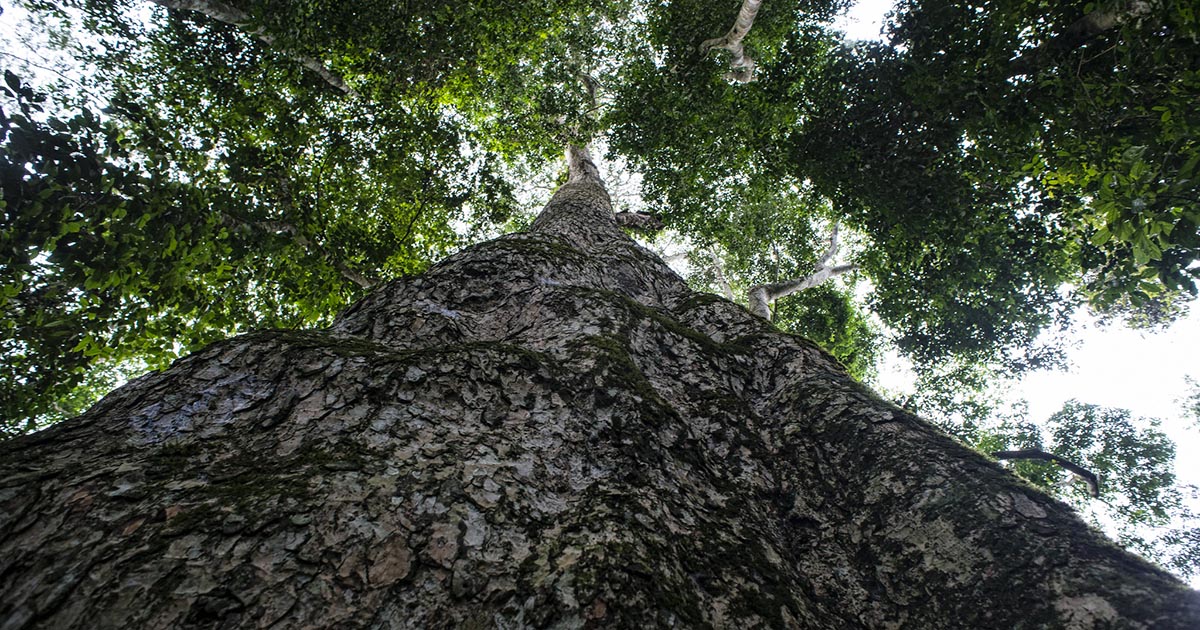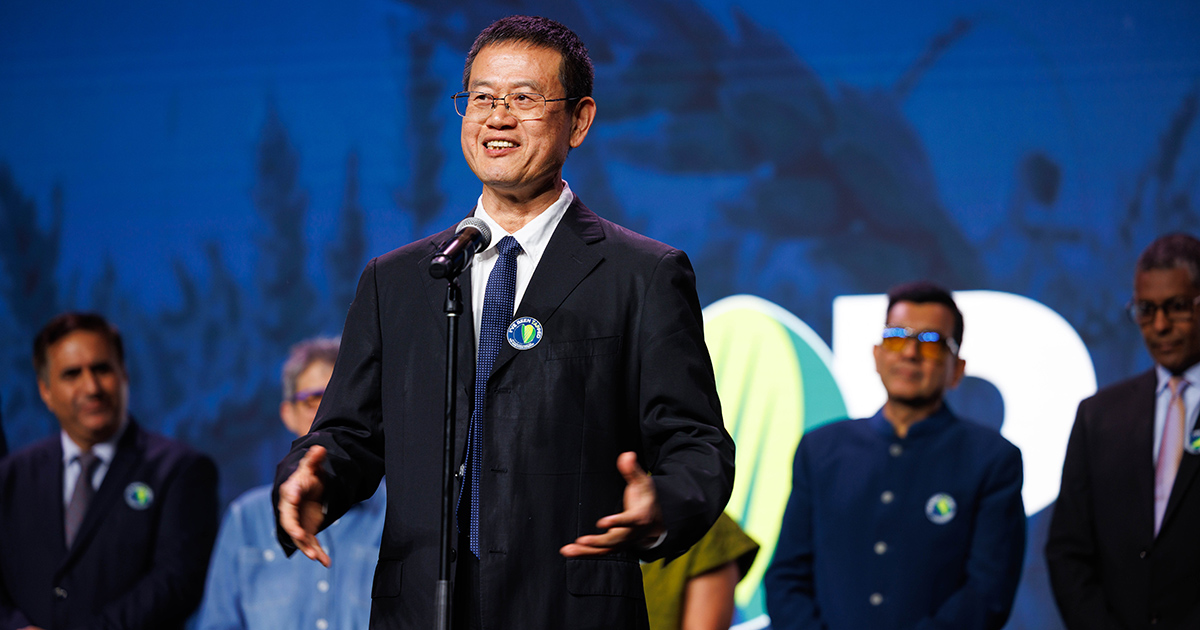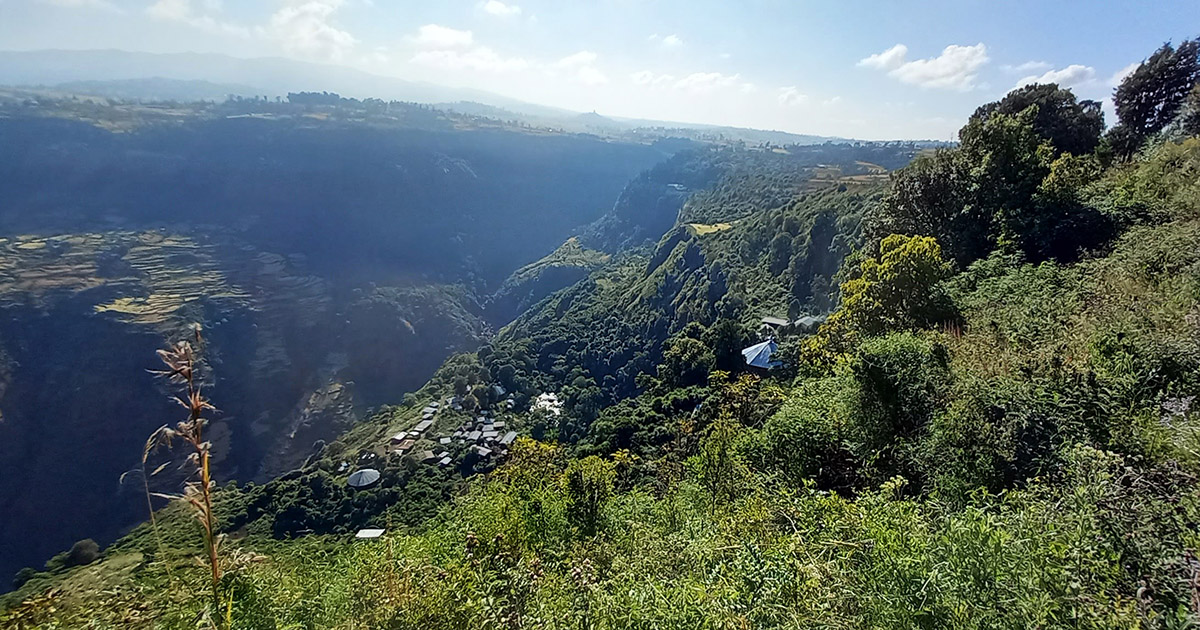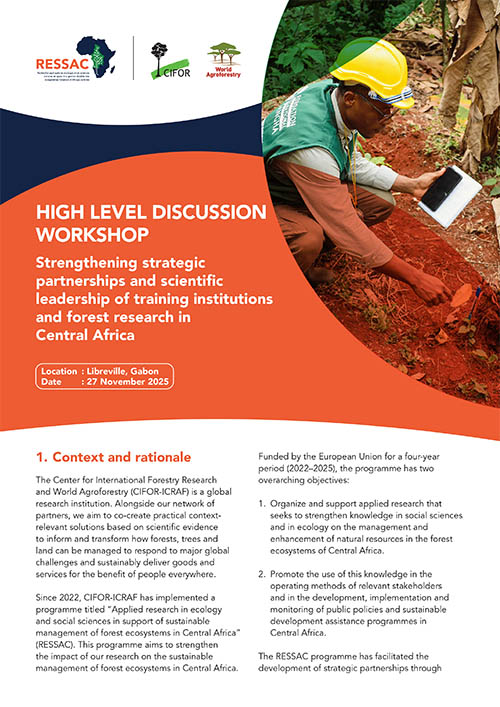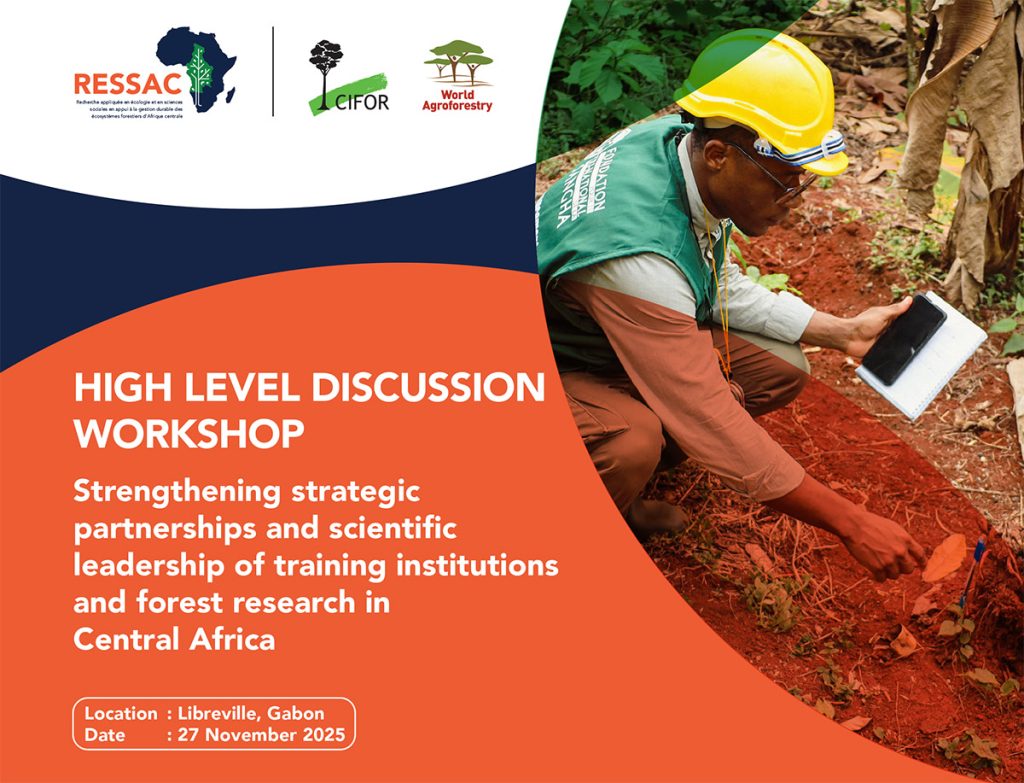
Context and rationale
The Center for International Forestry Research and World Agroforestry (CIFOR-ICRAF) is a global research institution. Alongside our network of partners, we aim to co-create practical context relevant solutions based on scientific evidence to inform and transform how forests, trees and land can be managed to respond to major global challenges and sustainably deliver goods and services for the benefit of people everywhere.
Since 2022, CIFOR-ICRAF has implemented a programme titled “Applied research in ecology and social sciences in support of sustainable management of forest ecosystems in Central Africa” (RESSAC). This programme aims to strengthen the impact of our research on the sustainable management of forest ecosystems in Central Africa.
Funded by the European Union for a four-year period (2022–2025), the programme has two overarching objectives:
- Organize and support applied research that seeks to strengthen knowledge in social sciences and in ecology on the management and enhancement of natural resources in the forest ecosystems of Central Africa.
- Promote the use of this knowledge in the operating methods of relevant stakeholders and in the development, implementation and monitoring of public policies and sustainable development assistance programmes in Central Africa.
The RESSAC programme has facilitated the development of strategic partnerships through consortiums of universities in the Global North and South, forest administrations, civil society and the private sector. These consortiums oversee research activities led by post doctoral researchers. Through the 26 projects supported since 2022, the programme has engaged 27 post-doctoral researchers, one doctoral student and 84 Master’s students to implement research activities with a network of partners including private companies, non-governmental organizations (NGOs), universities and research institutes.
As part of the RESSAC programme, coordination workshops were held with the project leaders and post-doctoral researchers and a mid-term evaluation was conducted. Through these mechanisms, the programme has fostered innovative and inclusive approaches to setting up research projects on forest ecosystems in Central Africa. In so doing, it has contributed to the implementation of the European policy on support for sustainable tropical forest management. As a result of the RESSAC programme, post-doctoral status is increasingly recognized by universities, institutes, research centres and the private sector in Central Africa. The post-doctoral researchers have in particular helped to increase the volume and scientific quality of research work. This was facilitated by more diverse partnerships and training on scientific writing, project design and funding mobilization in Central Africa.
To ensure the achievements of the programme can be maintained and expanded and to position Central African universities at the centre of research and innovation on the sustainable management of ecosystems and biodiversity conservation, a high level discussion workshop is planned. This workshop will bring together the leaders of the institutions involved alongside technical and financial partners at the national, regional and international levels. The aim of the workshop is to develop strategic, operational and institutional proposals for a paradigm shift that strengthens the position of post-doctoral programmes in African academic institutions’ research, teaching and development support ecosystems.
In its role as facilitator, in collaboration with the Network of Higher Education Institutions and Research Institutions in Central Africa (REESIRAC), CIFOR-ICRAF will mobilize institution leaders and other networks of higher education institutions to institutionalize a framework for connecting stakeholders that integrates post-doctoral research into both the university system and the research landscape in Francophone Africa. Other relevant networks include: the African and Malagasy Council for Higher Education (CAMES); the Network of Forestry and Environmental Training Institutions in Central Africa (RIFFEAC); the Regional Universities Forum for Capacity Building in Agriculture (RUFORUM); the African Network for Agriculture; and Agroforestry and Natural Resources Education (ANAFE). This framework will foster a dynamic and strategic transition between university education and the socio-professional world. The framework will also serve as a nexus between post-doctoral researchers and key development actors, while generating context-relevant responses or local solutions to the constraints affecting the management and conservation of forest ecosystems in Central Africa.
Workshop objectives
The objective of the workshop is to document good practices, catalyse research clusters into partnerships to improve scientific leadership and influence sustainable forest management policies and practices in Central Africa.
More specifically, it will:
- Encourage feedback on post-doctoral programmes at the regional and international level;
- Analyse the strengths, opportunities and needs of such programmes for the scientific standing of educational and research institutions;
- Discuss the need for institutional, organizational and financial capacity for the development of post-doctoral programmes in Central African universities;
- Establish the prerequisites for the implementation and operationalization of postdoctoral programmes and identify institutions in the sub-region with the capacity to host such programmes;
- Draw up a roadmap and assign stakeholders’ roles and responsibilities for the institutionalization of post-doctoral programmes in the forest research environment in Africa.




